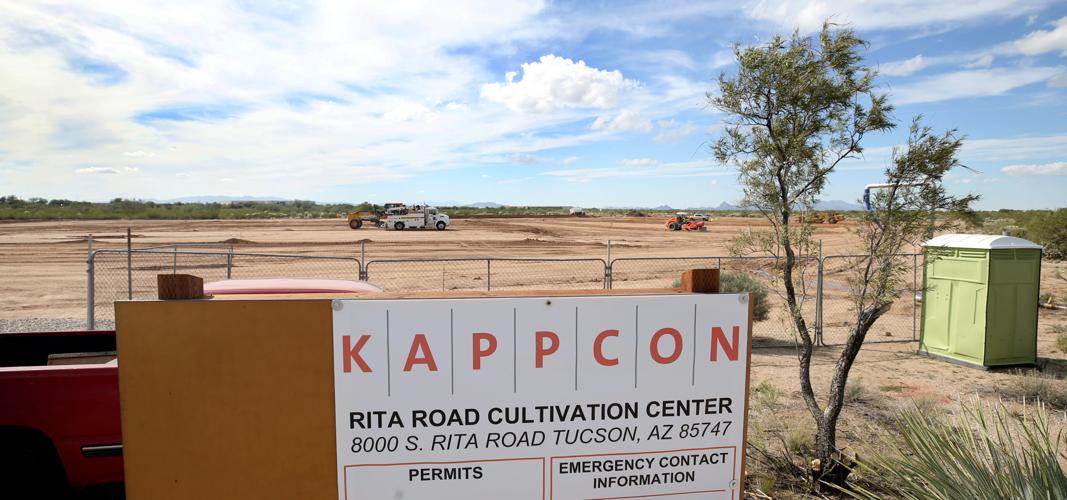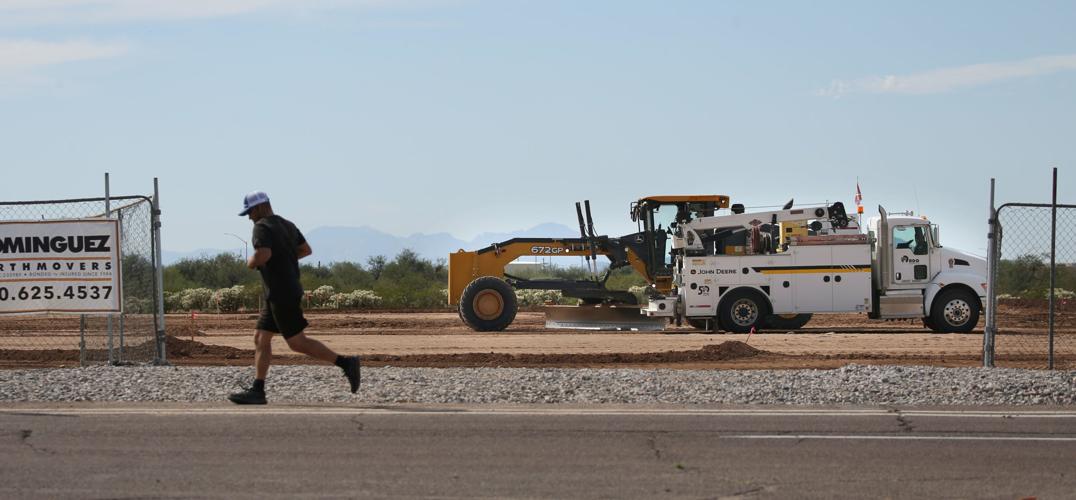A Tucson native is hoping to turn his hometown into a hot spot for cannabis cultivation by building a massive medical marijuana-growing complex on the city’s southeast side.
Construction is underway on the first phase of Tucson Cannabis Campus, a project envisioned as an eventual 440,000-square-foot facility on 16 acres of industrial land in Rita Ranch, where some residents are nervous about their new neighbor.
George Roop, a 2000 graduate of Canyon del Oro High School and co-owner of the new venture, said he’s building a state-of-the-art complex that, once complete, will be “the largest in Arizona and one of the largest in the United States.”
By comparison, nine of the 10 largest cannabis facilities in the western United States — where most legal growers are located — currently have less square footage than what Roop is planning for Rita Ranch, according to 2018 statistics from growersnetwork.org, an industry website that tracks the size of major grow sites.
Phase 1 of the project at 8000 S. Rita Road will create about 40,000 square feet of indoor grow space and about 50 jobs, Roop said. It’s slated to open in April, but may be delayed until later next year, he said.
He plans to add an additional 400,000 square feet of cultivation space over the next few years, about half of which is included in Phase 2, already approved by city planners. Phase 2 also includes a 33,000-square-foot outdoor growing area surrounded by a 10-foot wall. Those additions could create dozens more jobs, he said.
Wrought-iron fencing will surround the site and armed guards will be on duty around the clock, Roop said. The facility will have advanced security systems, including crop-monitoring cameras that link to the state health department 24 hours a day, he added.
Before he can open, Roop must submit a detailed plan for odor control to City Hall, said Daniel Bursuck, lead planner with the city of Tucson’s planning department.
Bursuck said growers who operate outdoors typically avoid stinking up their neighborhoods by bringing plants inside for harvest, the stage at which they are most pungent.
Some Rita Ranch residents are upset the city failed to notify them that a large grow house was coming to the area, but notice actually wasn’t required in this case because the site was already zoned for cannabis cultivation, a permitted use on the industrial site that falls within the flight path of Davis-Monthan Air Force Base.
A dozen or so residents who attended recent public meetings expressed fears about increased traffic, odor problems, property devaluation or possible crime .
“I’m against medical marijuana and I’m not happy about this at all,” said David Schmutz, who has lived for 22 years about a quarter-mile from the site.
“Basically the only recourse anyone has at this point is to move if they don’t want to live by this place. Either that or sue the city.”
The issue has caused spats between neighbors for and against the project on a private Facebook page for Rita Ranchers, Schmutz said in an interview.
“I made a list of my concerns, but I ended up taking it down because of all the negative comments against me,” he said.
The new facility will be Tucson’s eighth grow site since 2010, when Arizona voters legalized medical marijuana, creating the need for a cannabis supply chain. The seven others range in size from about 3,000 to 30,000 square feet, said Bursuck, the city planner. The city is reviewing its zoning rules for medical marijuana sites and will hold its next planning meeting on the topic Dec. 5 at 6 p.m. at City Hall, 255 W. Alameda St.
Existing growers “have generally been good neighbors” Bursuck said, noting the city has not received complaints about odor or traffic problems.
Some growers operate less than 1,000 feet from residential areas without any apparent impact on nearby homeowners, he added.
Getting loans for a cannabis business can be tricky, but Roop didn’t have to rely on banks. He said his business is a family venture funded by a well-to-do uncle in Florida, but he declined to release the price tag for the project.
Roop said he’ll only be able to supply dispensaries in Arizona at first because federal drug laws ban interstate sales.
But he hopes that will change at some point and has planned the size of his project with that possibility in mind.
“We are anticipating federal laws changing and being able to cross those state lines and really make a footprint here in Tucson,” said Roop, a retired professional mixed martial artist now raising a young family on the city’s west side.
Roop said he brings extensive experience to the project, having managed several other cultivation facilities in Arizona and beyond. He said he intends to live in harmony with his Rita Ranch neighbors.
“I have heard their concerns and their concerns are valid. I want them to know I am taking every step to mitigate their concerns,” he said.
“This is not a warehouse that I’m retrofitting. I’m building it from the ground up specifically for cannabis, and I believe it is going to set a new standard for the industry.”






